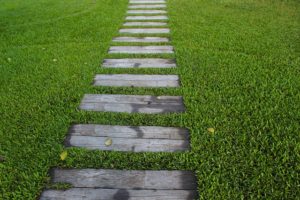Becoming A Writer Dorothea Brande
I took, and I still take, the writing of fiction seriously. The importance of novels and short stories in our society is great. Fiction supplies the only philosophy that many readers know; it establishes their ethical, social, and material standards; it confirms them in their prejudices or opens their minds to a wider world.
So writes Dorothea Brande in the introduction to her 1934 book, Becoming A Writer.
It seems to me that there is comparatively little written in the now hundreds of writing books about the psychological aspects of “being a writer” – about things that hit many of us, like lack of confidence, for instance, or the underlying anxieties that lead to writers block. (See Writing, Pressure, and the Things We Don’t Talk About Enough for more on these issues.)
And it’s interesting that, nearly 85 years after the book’s publication, despite the changes in technology , in spite of all the MFAs and books, the problems writers face are the same as they always were, and require the same basic solutions. These are what Becoming A Writer provides. It is essentially a guide to building for ourselves the good habits that form the foundation of a productive writing life.
You can see how later creativity books like The Artist’s Way have been influenced by Brande’s thinking and exercises – Becoming A Writer can be considered a precursor to those. She uses the language of the then-new psychoanalytic approach, and writes a great deal about the power of the unconscious, as well as what would later be popularized by Mihaly Csikszentmihalyi as “flow” .Her advice – she was a writing teacher – displays a genuine psychological understanding of writers and creative practice, particularly around building good habits and the sources of resistance.
The purpose of the book is to ‘”train” the burgeoning writer via a series of musings and practical exercises, such as writing first thing in the morning, agreeing with yourself to write at set times, viewing yourself objectively as a character and so on,as well as exercising your “non-writing” self.. She takes what we would now call a “holistic” approach– but there’s certainly no “woo” about it.
One particular strength for me is how the book encourages the writer to take ownership of their writing practice. Far too often, we look outside ourselves for the answers – to course qualifications, to self-declared ‘gurus’, to fixed interpretations of what constitutes good literature. Brande encourages quality, but wants her readers to know themselves well as people and what they think of the world and the big life questions, so that they may strive for honesty in their writing, to familiarize themselves objectively with their own quirks, style, strengths and weaknesses and then use that to improve and build on that knowledge and skill.
In all the books I’ve read on writing, I still don’t think I’ve found a guide to daily practice as common-sense and practical as this. In terms of content, it is every bit as relevant now as it would have been 80-odd years ago. As a result, I would highly recommend.
Use if you need:
- Guidance on building your regular writing practice
- Practical exercises to build up good writing habits
- An approach that encourages you to observe and take ownership of yourself as a writer, and that you can tailor to your own needs.


 How do you create your own path as a writer?
How do you create your own path as a writer?